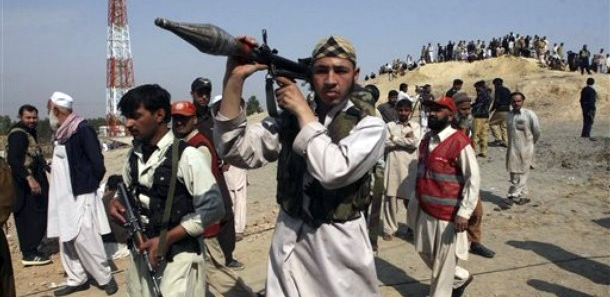
Who knew it would turn out to be quite so simple to round up much of the senior leadership of the Afghan Taliban?
Well, the reality is that most of us suspected it would be easy. They’ve been operating more or less openly in Quetta since 2002, and have been active in Karachi for at least the past three years as well. So, the assumption — by me at least — was always that Pakistan’s failure to round up the Quetta Shura Taliban (QST) was a matter strategic choice.
The strategic argument was that the Afghan Taliban provided a significant point of leverage on developments in Afghanistan. It allowed the Pakistanis to continue to angle for the creation of “strategic depth” in Afghanistan, and it provided Islamabad a tool to try to block Indian influence in Afghanistan. This line of argumentation provided a durable interpretation for Pakistan’s apparent ambivalence about weakening the QST.
So what changed? There are at least three possible interpretations, and one possible correction.
(1) It is possible that the Pakistani government is no longer concerned about using the QST as leverage in Afghanistan. This could be due to either some rethinking or new information about India’s role or some sort of commitments coming out of Kabul. The former is not wholly implausible, as Pakistani-Indian direct talks are now restarting for the first time since the Mumbai attacks, suggesting some level of backchannel communication over the past few months.
(2) It is possible that the Pakistani government has concluded that it cannot, after all, ensure that the Pakistani (TTP) and Afghan Taliban (QST) are separate entities. Given six months of offensives against the Pakistani Taliban, it is certainly possible that their strategic assessment of the two groups has changed, and that as a result the Pakistanis now consider the QST to be a greater threat than in the past.
(3) It is also quite possible — as I mentioned earlier — that the American escalation in Afghanistan turned the tide. It may indeed have convinced the Pakistanis that we would exert a durable influence which would at once mitigate the need to hedge against Indian influence in Afghanistan and also convince the Pakistanis that we would stay the course and support them against radical movements indefinitely. I think this is perhaps the most likely dynamic, though I remain leery of accepting it too quickly. We Americans often like to think the world revolves around our actions, and we tend to cast all developments as being a consequence of American decisions. But as I mentioned earlier, the match between the promises of those promoting escalation and the development in Pakistan does give a certain credence to this interpretation.
(4) Finally, the potential correction. Maybe, it wasn’t that the Pakistanis were choosing to tolerate QST presence all these years, but rather that — as they argued — they just didn’t know where they were. Perhaps recent moves and upheavals have acted like pulling on the string that unravels the whole rug, or maybe the recent captures have just been dumb luck. All of the strategic interpretations ASSUMED that Pakistan could have done this long ago. But if they couldn’t, then all our theorizing about Pakistani strategic thinking could well have been an illusion, and our attempts to cast recent developments in terms of a rational response to new facts could also be a chimera.
Frankly, I don’t know what to make of it. Fascinating to watch, and good news to boot.
Dr. Bernard I. Finel, an Atlantic Council contributing editor, is a senior fellow at the American Security Project. This essay previously appeared at ASP’s Flash Point Blog. AP Photo.
Image: PakistanMilitia.jpg
